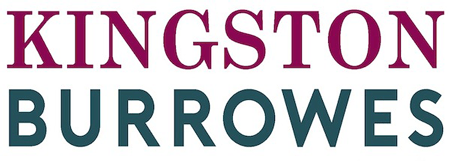Advice for Contractors
Changes to off-payroll working rules will finally come into effect from 6 April 2021 after a one-year delay. If you’re not sure whether this affects you as a contractor, then read on to find out what the changes involve and how they will work in practice. Getting a clear understanding of the rules in advance of April is the best advice we can give to our clients right now. The changes are important because they may affect the tax and NICs you pay.
In summary, the off-payroll working rules are being extended to apply to services provided to medium or large private sector clients. Currently only public sector end clients are included in the off-payroll working rules.
Existing rules
At present, if your services are provided through an intermediary to a private sector organisation, consideration of the IR35 rules needs to be made. You effectively need to determine whether the working relationship between yourself and your client takes the form of employee and employer if you were to ignore the existence of your personal service company.
If it does take the form of employer/employee, you would be required to comply with the IR35 rules and calculate the employment payment at the end of the tax year and make tax and National Insurance Contributions to HMRC.
However, if the relationship is in fact genuine self-employment, the IR35 rules do not currently apply and you do not need to make these payments. In this instance, you can simply take profits from your company as you wish, making tax and NIC (as needed) deductions to the amount extracted.
What is changing from 6 April?
From the 6 April, the off-payroll working rules which currently only apply when services are supplied to public sector bodies, will be extended to apply to medium or large private sector organisations also. (N.B. There will be no change to the rules with regards to services provided to small private sector end clients and you will need to continue to consider IR35 rules as you do now.)
What constitutes a medium or large client?
Only medium or large private sector organisations are affected by the change but how do you know if your client falls into this category?
An organisation is considered medium or large (for off-payroll working rules purposes) if at least two of the following apply:
- annual turnover is more than £10.2 million
- balance sheet total is more than £5.1 million
- there are more than 50 employees
The organisation is obliged to provide this information if you request it.
Providing services to a medium or large client from 6 April 2021
If you supply services to a medium or large private sector organisation (through your intermediary company) after this date, you no longer need to consider the IR35 rules. From this point, the end client is responsible for determining the nature of the working relationship. They will need to provide a ‘status determination’, which states and explains why the relationship takes the form of employee or self-employed (if the intermediary company were excluded).
Once they have provided you with their determination, you are advised to check the details yourself using HMRCs ‘check employment status for tax’ (CEST) tool. Should you disagree with their determination, you should provide the client with a copy of the CEST outcome as well as your reasoning as to why you disagree. The client must consider your assessment and reconsider their decision. They must reply within 45 days, stating the outcome of their reassessment.
If the client reaches the determination that you would be an employee if you were providing your services directly, then they must calculate the ‘deemed direct payment’ made to your personal services company. Your invoice would be adjusted to deduct VAT and the cost of materials, and tax and NICs must be deducted from the deemed payment. They also need to pay employers NICs on the payments even though you would not be an employee, and they will need to calculate the correct tax code and report payments and deductions to HMRC.
You will still need to complete a self-assessment tax return and will still be able to extract funds from your company, however when calculating personal tax owed, you will be granted a credit for tax and NICs deducted from payments made to the company.
If on the other hand, the determination reached is that the relationship is one of self-employment, then the off-payroll working rules do not apply. The client should continue to pay your invoices gross, without deducting tax and NICs.
Further guidance on off-payroll working (IR35) can be found on the HMRC Gov.uk website.
Access Contract Review Services
If you are a contractor in need of an IR35 contract review, we recommend that you contact Qdos Contracting, who offer a range of contract reviews to suit your specific needs.
They will assess your contract as well as your working practices with your end client, to provide a professional opinion regarding your IR35 status.




